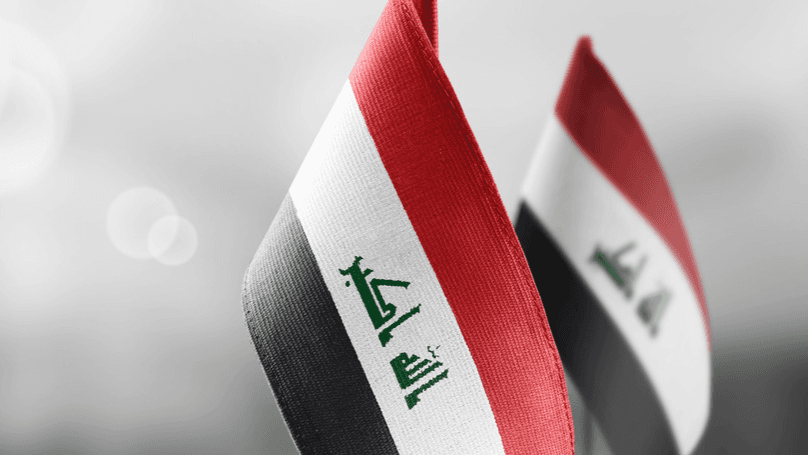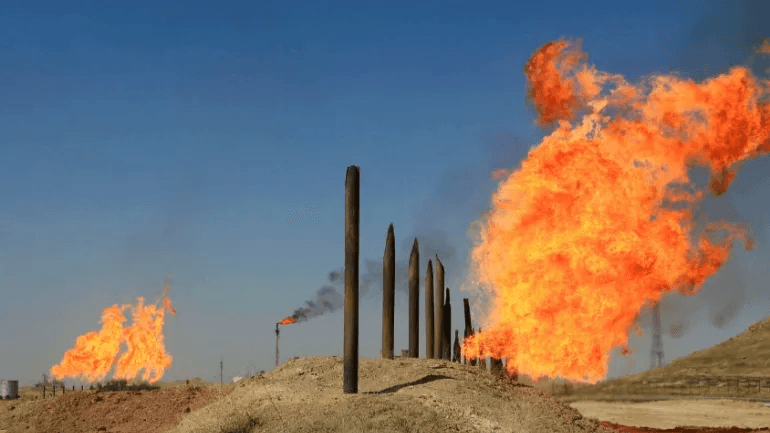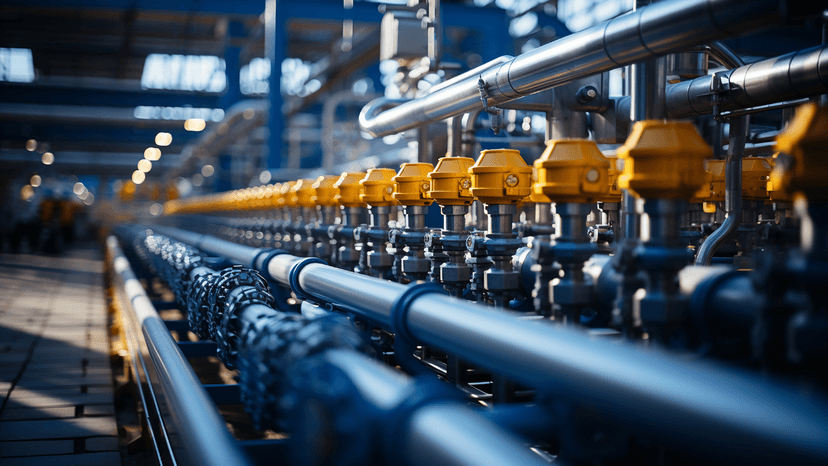Blogs

Gulf countries are pressuring the U.S. and Israel to avoid attacks on Iranian oil facilities, fearing retaliation against their own oil infrastructure. Iran has warned Saudi Arabia that it cannot ensure the safety of Saudi oil sites if Israel strikes Iran, and Saudi Arabia has refused to let Israel use its airspace for such attacks.
Key Concerns:
- GCC countries, including Saudi Arabia, Qatar, and the UAE, are alarmed by Israel’s threats to target Iran's energy and military sites.
- The U.S. is working to prevent Israel from attacking Iranian oil facilities to avoid escalating tensions in the region.
- Gulf nations fear retaliatory attacks on their oil facilities, similar to the 2019 Aramco drone strikes, which disrupted 5% of global oil supplies.
Diplomatic Efforts:
- Saudi Arabia is engaging with Iran to demonstrate neutrality in the conflict. Recent talks have involved high-level meetings between Saudi and Iranian officials.
- Iran has warned Gulf countries that allowing Israeli use of their airspace for strikes would be considered an act of war.
Regional Stance:
- Saudi Arabia, the UAE, and Qatar have refused to allow Israeli aircraft or missiles to pass through their airspace.
- These Gulf states are distancing themselves from Israel to avoid being dragged into conflict, especially amid growing tensions following the Gaza war.
Oil Market Impact:
- OPEC has the capacity to compensate for lost Iranian oil, but attacks on Saudi or UAE oil sites could destabilize global markets further.
- Gulf nations are hopeful that their diplomatic efforts will keep their oil facilities safe from potential attacks.
Source: Reuters

At Connectly.24, we are thrilled to share some exciting updates that mark a significant milestone in our journey. As we continue to grow and evolve, we are expanding our footprint and service offerings to better serve our clients across the region.
New Locations
To enhance our accessibility and support, we are proud to announce the opening of new offices in key locations:
- Head Office in Basra: Located at Zubair, Safwan Road, Near Albahrya Police Checkpoint, our new Basra office will serve as the central hub for our operations in Iraq.
- Erbil Office: Situated at Nishtiman St., Justice Tower, 5th Floor, Office 16, this office will bolster our presence and capabilities in northern Iraq.
- Dubai Office: Positioned at Dubai Silicon Oasis, DDP, Building A1, our new Dubai location will support our growing operations in the UAE and the broader Middle East region.
Expanded Services
We are excited to offer an expanded range of services designed to meet the evolving needs of our clients:
- Civil Engineering and Pipelines: Our team is now equipped to handle complex civil engineering projects and pipeline installations, ensuring precision and quality.
- Supply of Drilling and Workover Operations Materials: We provide comprehensive solutions for drilling and workover operations, supplying high-quality materials to support efficient and effective operations.
- Drilling and Completion Materials: Our new offerings include specialized drilling and completion materials, essential for successful project execution.
In addition to these new services, we continue to offer our expertise in tendering, contracting, and public relations within the oil and gas sector. Our commitment to excellence in these areas remains unwavering.
Registered and Certified
Connectly.24 is officially registered with IDC and the Central Government under Registration No. 000087552. This certification underscores our adherence to industry standards and our dedication to providing top-notch services.
We invite you to connect with us and explore how our expanded services and new locations can benefit your projects. Stay tuned for more updates as we continue to grow and innovate!
For more information or to get in touch with our new offices, please visit our website or contact us directly.
#Connectly24 #NewLocations #ExpandedServices #CivilEngineering #OilAndGas #Dubai #Basra #Erbil

1. Oil Production: Approximately 4.5 million barrels per day.
2. Proven Oil Reserves: Around 145 billion barrels.
3. Natural Gas Production: About 1.1 trillion cubic feet per year.
4. Proven Natural Gas Reserves: Approximately 132 trillion cubic feet.
5. Export Revenue: Oil exports generate over 90% of government revenue and more than 85% of foreign exchange earnings.
6. Employment: The oil sector employs around 1% of the Iraqi workforce, highlighting low job creation despite its economic importance.
7. Infrastructure Issues: Aging infrastructure, lack of investment, and frequent attacks on pipelines leading to production disruptions.
8. Gas Flaring: Iraq is one of the top countries for gas flaring, wasting valuable resources and causing environmental pollution.
9. Corruption: Widespread corruption within the oil sector, affecting transparency and efficiency.
10. Political Instability: Ongoing political instability and security concerns hinder consistent production and investment.
11. Dependency: Over-reliance on oil revenue makes the economy vulnerable to oil price fluctuations.
12. Regulatory Environment: Inefficient regulatory framework and bureaucratic delays discourage foreign investment.
13. Environmental Concerns: Significant environmental degradation due to oil extraction and inadequate waste management practices.
14. Electricity Shortages: Despite being a major oil producer, Iraq faces frequent electricity shortages, impacting both the population and industrial activity.
15. Investment Needs: An estimated $30 billion is needed over the next decade to modernize the sector and meet production targets.
16. Technological Challenges: Lack of modern technology and expertise hampers the efficient extraction and production of oil and gas.
17. International Sanctions: Periodic international sanctions have impacted the sector's ability to attract investment and access necessary technology.
18. Economic Diversification: Efforts to diversify the economy away from oil dependency are slow and face numerous structural and political barriers.
19. Water Scarcity: Water needed for oil production competes with the agricultural sector and domestic needs, exacerbating water scarcity issues in certain regions.
Sources: IEA, EIA Energy, World Bank, Iraq Business News

Iraq, a pivotal player in the global energy market, stands as the second-largest crude oil producer in OPEC, following Saudi Arabia, and the sixth-largest producer of total petroleum liquids worldwide. With the fifth-largest proved crude oil reserves globally, Iraq holds a significant position in the energy sector, underpinned by its extensive onshore oil fields, primarily in the Basra, Diyala, and Kirkuk regions.
Crude Oil Production and Exports
Crude oil exports are the linchpin of Iraq's economy, accounting for about 95% of its government revenue in 2022. Iraq's oil revenues surged to $131 billion in 2022, driven by elevated oil prices and increased production. However, 2023 witnessed a dip in oil revenues due to global price reductions and OPEC+ production cuts. Despite these challenges, Iraq aims to boost its crude oil production capacity to 7 million barrels per day (b/d) by 2027, supported by several upstream projects, albeit hampered by political and regulatory hurdles.
Kurdistan Regional Government (KRG) and Federal Iraq
The relationship between the Kurdistan Regional Government (KRG) and Federal Iraq remains complex, marked by disputes over sovereignty and oil production. The KRG's oil production has faced setbacks due to delayed payments to international oil companies (IOCs) and underwhelming exploration results. The closure of the Iraq-to-Turkey pipeline in 2023 further strained KRG's production capacity, impacting the region's economic stability and increasing its reliance on loans from Federal Iraq.
Natural Gas Sector
Iraq's natural gas sector, while promising, is constrained by regulatory and investment challenges. With the 12th largest proved natural gas reserves globally, Iraq's natural gas output has remained relatively flat due to insufficient infrastructure. In 2022, Iraq was the second-largest source of flared natural gas worldwide, a consequence of inadequate pipeline capacity. Projects aimed at capturing associated natural gas are in the pipeline, potentially boosting electricity generation and reducing reliance on imports from Iran.
Refining Capacity and Future Projects
Iraq's refining sector is undergoing significant changes, with a current operating capacity of about 1.2 million b/d. The country aims to reduce its dependency on imported petroleum products by expanding and upgrading existing refineries and commissioning new ones. Notable projects include the Karbala refinery, which reached full capacity in September 2023, and upcoming projects at the Basra and Baiji refineries slated for completion in 2024.
Investment and Infrastructure Challenges
The ambitious plans to enhance Iraq's energy production are frequently hindered by political instability, regulatory challenges, and bureaucratic delays. Despite these obstacles, international partnerships, such as the agreement with TotalEnergies for a seawater conversion project, highlight Iraq's potential to overcome these challenges and boost its energy output in the coming years.
Conclusion
Iraq's energy landscape in 2024 is characterized by significant potential tempered by substantial challenges. The nation's reliance on crude oil revenues, coupled with the need for improved infrastructure and regulatory reform, will shape its energy strategy moving forward. As Iraq navigates these complexities, its role in the global energy market remains crucial, with ongoing efforts to harness its vast natural resources and attract foreign investment.
The information for this summary was derived from the U.S. Energy Information Administration's "Country Analysis Brief: Iraq" published in February 2024.
Sources:
- U.S. Energy Information Administration (EIA), Country Analysis Brief: Iraq, February 2024.

The oil sector in Iraq is one of the most critical pillars of the national economy, with the government heavily relying on oil export revenues as a primary source of income, significantly impacting global oil markets. Analyses of Iraq's monthly crude oil exports by sea encapsulate a wide range of economic, political, and strategic considerations that require comprehensive and detailed analysis.
Analysis:
1. Export Fluctuations:
The study, spanning from January 2016 to June 2023, reveals a series of fluctuations in Iraq's monthly crude oil exports by sea. These fluctuations reflect a range of factors, including geopolitical tensions, market demand, and internal operational challenges. Monthly exports have varied significantly, ranging from an average of 3.0 to 3.8 million barrels per day during the specified period. These fluctuations underscore the volatility of the global oil market and its profound impact on Iraq's export volumes.
2. Southern Exports:
Southern Iraq is a major hub for oil production and export, contributing significantly to the country's total exports. Analyses show that southern exports consistently constitute the largest share of Iraq's total exports, averaging between 3.0 and 3.6 million barrels per day. Despite occasional fluctuations, southern exports generally exhibit relative stability, reflecting the strong infrastructure and high operational efficiency of this region.
3. Northern Exports (Ceyhan Port via the Iraq-Turkey Pipeline):
In contrast, northern Iraq, particularly exports facilitated through the Iraq-Turkey pipeline to the Ceyhan Port, experiences greater fluctuations. Monthly export volumes vary widely, ranging from 0.2 to 0.6 million barrels per day. These fluctuations can be attributed to a range of factors, including security threats, geopolitical tensions, and operational challenges in northern Iraq.
4. Challenges and Opportunities:
The analyses also highlight the numerous challenges facing Iraq's oil sector. Ongoing political instability, security concerns arising from regional conflicts, and operational challenges pose significant barriers to the continuous flow of oil exports. However, amidst these challenges, Iraq's oil sector presents substantial opportunities for growth and development. Investments in infrastructure, technological innovation, and regulatory reforms can unlock new potentials for increasing production capacity and export efficiency.
Outlook:
Based on the insights obtained from the analysis, a cautiously optimistic outlook can be justified regarding the trajectory of Iraq's monthly crude oil exports by sea in the near future. Ongoing efforts to overcome operational challenges, alongside strategic investments in infrastructure and regulatory reforms, are poised to strengthen Iraq's position as a major player in the global oil market.
Conclusion:
Iraq's monthly crude oil exports by sea serve as a vital indicator of the country's economic health and its broader impact on the global energy landscape. By delving into the details of export trends, stakeholders, from policymakers to investors, can gain valuable insights to help them make strategic decisions and contribute to the sustainable development of Iraq's oil sector.
Sources:
- Data source: Vortexa tanker tracking, EIA
- Note: Exports include only crude oil transported by sea and do not encompass crude oil transported by trucks or land pipelines